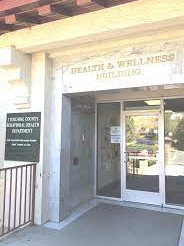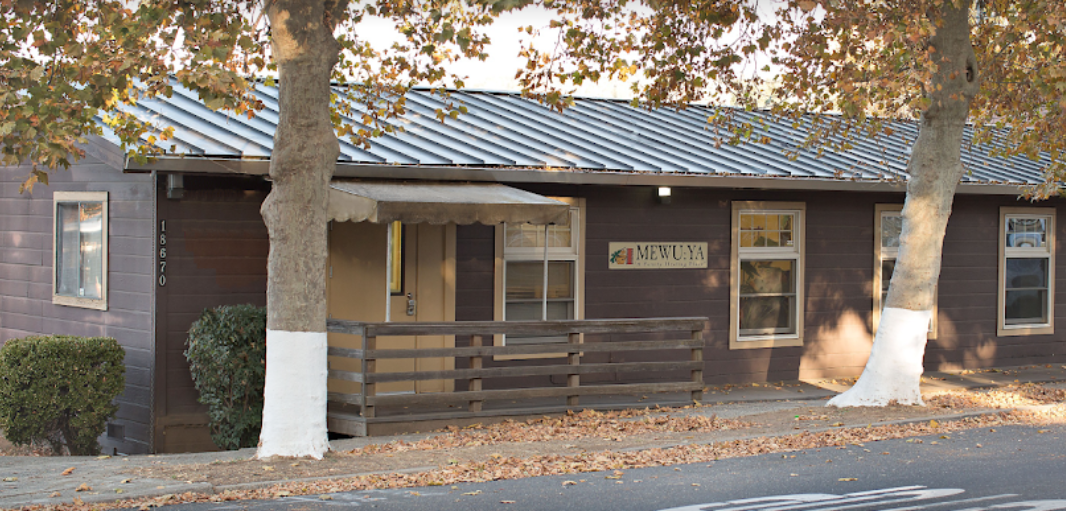Tuolumne County Behavioral Hlth Servs

Contact Details
-
Name:Tuolumne County Behavioral Hlth Servs
-
Address:105 Hospital Road
Sonora, CA - 95370 -
Phone:209-533-6245
-
Email:
-
Website:
Description
There are currently state and federally funded or sponsored drug and alcohol treatment centers in the state of California
Questions & Answers
Help others like you find out more about Tuolumne County Behavioral Hlth Servs. Do you know the answers to any of these questions? Contribute now and help others like you.
What kinds of care do they offer?
-
Substance use treatment
Refers to a broad range of activities or services, including identification of the problem (and engaging the individual in treatment); brief interventions; assessment of substance abuse and related problems including histories of various types of abuse; diagnosis of the problem(s); and treatment planning, including counseling, medical services, psychiatric services, psychological services, social services and follow-up for persons with alcohol or other drug problems (Institute of Medicine, 1990).
-
Treatment for co-occurring substance use plus either serious mental health illness in adults/serious emotional disturbance in children
Housing for individuals recovering from substance abuse that is designed to provide a drug and alcohol-free living environment and appropriate support services to facilitate movement to independent living. Such housing includes transitional living, sober houses, sober living, recovery houses, and 3/4 houses.
What types of opioid treatment do they provide?
-
Accepts clients using MAT but prescribed elsewhere
What types of treatment approaches do they offer?
-
Cognitive behavioral therapy
Involves recognizing unhelpful patterns of thinking and reacting, and then modifying or replacing these with more realistic or helpful ones. The therapy can be conducted with individuals, families, or groups, and clients are generally expected to be active participants in their own therapy.
-
Telemedicine/telehealth therapy
The ability for healthcare providers, working from a distance using telecommunications technology, to communicate with patients, diagnose conditions, provide treatment, and discuss healthcare issues with other providers to ensure quality healthcare services are provided. Other names used for this treatment approach are: e-medicine, e-therapy, e-psychiatry, and telepsychiatry.
-
Substance use disorder counseling
A short-term treatment that has been generalized for a variety of disorders including opiate drug dependence and cocaine abuse. The therapy includes supportive techniques which encourage the patient to discuss personal experiences, and expressive techniques, which enable the patient to work through interpersonal relationship issues and gain greater self-understanding.
-
Trauma-related counseling
Cognitive behavior techniques adapted for clients suffering from post-traumatic stress disorder (PTSD) and other effects of abuse and trauma.
-
12-step facilitation
A 12-step program is a support group made up of people who share the same addiction. The "12 steps" refer to the steps recovering addicts must take to overcome their addiction as part of this program. Attendees at group meetings share their experiences, challenges, successes and failures, and provide peer support for each other.
-
Brief intervention
A short-term intervention, usually one to five sessions, for substance abusers who are not yet dependent.
-
Motivational interviewing
A counseling approach which acknowledges that many people experience ambivalence when deciding to make changes. Its aim is not to focus immediately on the action of changing, but to work to enhance motivation to change.
-
Anger management
Uses strategies to address the anger cycle, conflict resolution, assertiveness skills, and anger-control plans. The goal of anger management is to reduce both emotional feelings and the physiological arousal that anger causes.
-
Matrix Model
Provides a framework for substance abuse users to obtain the ability to cease drug use, stay in treatment, and participate in an educational program on addiction and relapse. Users are provided with direction and support from a trained therapist and are introduced to self-help programs.
-
Relapse prevention
A cognitive behavioral therapy developed for the treatment of problem drinking and adapted later for cocaine addicts. Cognitive behavioral strategies are based on the theory that learning processes play a critical role in the development of maladaptive behavioral patterns. Individuals learn to identify and correct problematic behaviors. Relapse prevention encompasses several cognitive behavioral strategies that facilitate abstinence as well as provide help for people who experience relapse.
-
Smoking permitted in designated area
A designated area in which smoking is permitted.
What type of setting is this location?
-
Outpatient
Describes patients who receive treatment services without an overnight stay at a treatment facility or hospital.
-
Intensive outpatient treatment
-
Regular outpatient treatment
Who is responsible for the operation of this facility?
-
State government
Government of a country subdivision in a federal form of government, which shares political power with the federal or national government and must meet certain standards set by the federal government, but are free to expand beyond what exists at the federal level and improve services, access, and protections for consumers, such as mental health and substance abuse services, in that state.
What types of license or certifications or accreditation does this facility posses?
-
State department of health
What types of payment or funding do they accept?
-
Cash or self-payment
Payment for treatment is made by the person directly, through cash or other means, rather than using health insurance.
-
State-financed health insurance plan other than Medicaid
-
Federal, or any government funding for substance use treatment programs
Financial assistance provided by the federal, state, or local government for substance use treatment.
-
SAMHSA funding/block grants
Mandated by Congress, SAMHSA's block grants are noncompetitive grants that provide funding for substance abuse and mental health services. Eligible entities must submit an annual application to demonstrate statutory and regulatory compliance in order to receive the formula-based funding. There are two block grant programs: (1) Substance Abuse Prevention and Treatment Block Grant (SABG); and (2) Community Mental Health Services Block Grant (MHBG).
What language services are offered?
-
Sign language services for the deaf and hard of hearing
Service provided for persons who are deaf and hard of hearing.
-
Spanish
Staff counselors provide treatment in Spanish.
What specific groups are treated here?
-
Clients with co-occurring mental and substance use disorders
Facility has a program or group specifically tailored for persons with co-occurring mental and substance abuse disorders.
-
Criminal justice (other than DUI/DWI)/Forensic clients
Facility has a program or group specifically tailored for clients referred from the court/judicial system.
-
Adolescents
Facility has a program or group specifically tailored for Adolescents.
-
Pregnant/postpartum women
Facility has a program or group specifically tailored for Pregnant/postpartum women.
-
Adult women
Facility has a program or group specifically tailored for adult women.
-
Adult men
Facility has a program or group specifically tailored for adult men.
-
Young adults
Facility has a program or group specifically tailored for Transitional age young adults.
What ancillary services are offered at this facility?
-
Case management service
Helps people arrange for appropriate services and supports through a case manager who monitors the needs of clients/patients and their families and coordinates services, such as mental health, social work, health, educational, vocational, recreational, transportation, advocacy, and respite care, as needed.
-
Suicide prevention services
Include identifying risk factors; educating staff on identifying the signs of suicidal behavior and using methods to detect risk; and the assessment, intervention, and management of suicidal patients including treatment of an underlying mental or substance use disorder, and use of psychotropic medication, supportive services, and education. Hotlines help individuals to contact the nearest suicide prevention mental health provider.
-
Child care for clients' children
A treatment program that offers child care for children while their parents are in treatment.
-
Domestic violence services, including family or partner
Provide safety assistance to victims of domestic violence.
-
Mental health services
Assessment, diagnosis, treatment or counseling in a professional relationship to assist an individual or group in alleviating mental or emotional illness, symptoms, conditions or disorders.
-
Social skills development
-
Transportation assistance
What types of recovery support services are offered here?
-
Mentoring/peer support
-
Housing services
Are designed to assist individuals with finding and maintaining appropriate housing arrangements.
-
Employment counseling or training
Advises, coaches, provides information to and supports people who are planning, seeking and managing their life/work direction.
-
Recovery coach
Are provided by mental health consumers and include mental health treatment or support services, such as social clubs, peer-support groups, and other peer-organized or consumer-run activities (e.g., consumer satisfaction evaluations of mental health treatment).
What kinds of education and counseling services are offered here?
-
Individual counseling
Process through which clients work one-on-one with a trained mental health clinician in a safe, caring, and confidential environment.
-
Group counseling
Form of therapy where people with similar experiences/issues come together with a professional therapist.
-
Family counseling
A type of psychological counseling (psychotherapy) that can help family members improve communication and resolve conflicts.
-
HIV or AIDS education, counseling, or support
Access to education, counseling, and support groups to ?at risk? individuals and also individuals who have been infected with the virus.
-
Substance use disorder education
What genders are accepted here?
-
Female
-
Male
What kinds of transitional services do they provide if any?
-
Discharge Planning
A process that aims to improve the coordination of services after discharge from the hospital by considering the patient?s needs in the community.
Who provides the opioid medications used in treatment?
-
In-network prescribing entity
What types of alcohol abuse treatment are available at this facility?
-
Accepts clients using medication assisted treatment for alcohol use disorder but prescribed elsewhere
Who provides the medication used in alcohol abuse treatment?
-
No formal relationship with prescribing entity
Is vaping allowed at this facility?
-
Vaping permitted in designated area
How do I apply for admission at this location?
Have you been to this facility? What was your experience?
Is there a wait-list for treatment center?
Is any payment required?
Related Posts
Tuolumne MeWuk Indian Hlth Ctr
- Tuolumne, CA
- 7.75 miles away

